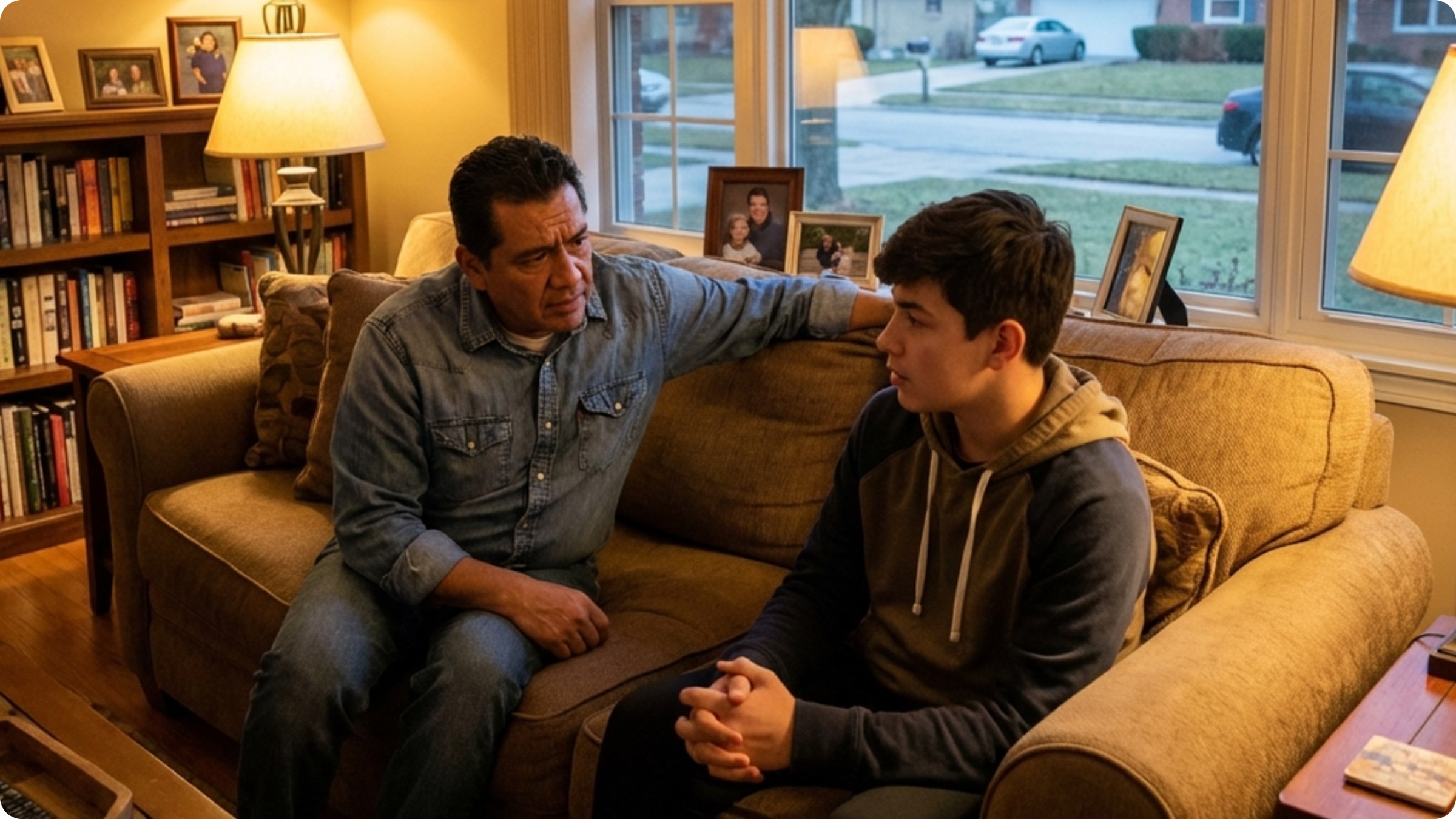I'm Lisa Park, a UX designer in Silicon Valley, California. My daughter Sophia just started eighth grade. She's always been this bright, outgoing kid who loved drama club and made us laugh at dinner. But two months ago, everything changed. She stopped talking at dinner. Started saying she had headaches before drama rehearsals. Her math grade dropped from a B to a C. Every time I asked what was wrong, she'd just look down and whisper, "I'm not good enough, Mom." I knew something was breaking my daughter's spirit, but she wouldn't tell me what. That's when I turned to FamiSafe's one-way audio feature.
Meet the Park Family Story
When Silence Speaks Volumes: Uncovering Hidden Bullying in Educational Spaces

Our Family's Struggle

Challenge
It started small. Sophia would come home from math tutoring on Tuesday nights and go straight to her room. No snack, no chat, just silence. Then she started making excuses to skip drama club—the thing she'd loved since fourth grade. "My stomach hurts." "I have too much homework." "I don't feel like it today." At the dinner table, my usually chatty daughter pushed food around her plate and barely made eye contact. When I asked her what was wrong, she'd just shake her head. "Nothing, Mom. I'm fine." But she wasn't fine. Her math grade slipped. She stopped auditioning for lead roles. One night, I found her crying in bed. "What happened, sweetie?" I asked, sitting beside her. "I'm just not smart enough," she said. "I'm not talented enough. Everyone says so." My heart broke. Who was saying these things? Why wouldn't she tell me? I felt helpless, watching my confident daughter disappear and having no idea how to fight an enemy I couldn't see.

Solution
I'd been using FamiSafe's basic features since Sophia got her first phone, but I'd never tried the one-way audio monitoring. Since phones are banned during school hours, I focused on after-school times when she was at tutoring and drama club. On Tuesday evening during math tutoring, I heard the tutor sigh and say, "Girls usually struggle more with geometry. Don't worry, it's normal." My blood boiled. On Thursday afternoon at drama rehearsal, the director snapped, "Sophia, you're slowing everyone down again. Can you just focus?" That's when I realized—my daughter wasn't struggling. She was being torn down by the very adults supposed to encourage her. I sat Sophia down that weekend. "Honey, those comments aren't about you. They're wrong, and they're unfair," I told her. Then I made calls. I spoke to the tutoring center and requested a different instructor. I met with the drama club advisor and explained what was happening. The tutoring center assigned Sophia a patient, supportive tutor. The drama director had a serious talk with the instructor. Slowly, Sophia came back to life. She nailed her role in the end-of-term play. Her math grade climbed to a B+.
The Park Family Today







